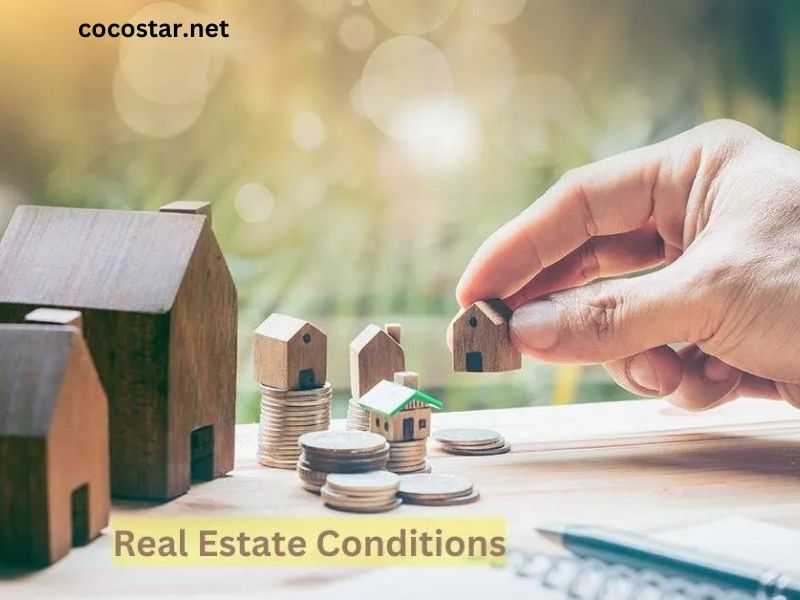In real estate, understanding property conditions is crucial for making informed decisions. Among these conditions, “adverse conditions” are particularly significant because they can impact the value, safety, and desirability of a property. This article delves into what constitutes an adverse condition, how it affects real estate transactions, and what buyers and sellers need to consider.
Defining Adverse Conditions
An adverse condition in real estate refers to any negative factor that affects a property’s value, utility, or livability. These conditions can be physical, legal, or environmental and can have significant implications for buyers, sellers, and investors. Identifying these conditions is essential for accurate property valuation and ensuring that all parties are aware of potential issues before proceeding with a transaction.
Types of Adverse Conditions
- Physical Adverse Conditions
- Structural Issues: Problems such as foundation cracks, roof damage, or termite infestations fall into this category. These issues can compromise the integrity of the building and require costly repairs.
- Mold and Water Damage: Moisture problems can lead to mold growth, which not only affects the building’s structure but can also pose health risks to occupants.
- Poor Maintenance: Deferred maintenance, such as neglected landscaping, broken appliances, or outdated systems, can detract from a property’s overall value and appeal.
- Environmental Adverse Conditions
- Flood Zones: Properties located in flood-prone areas are at risk of water damage, which can lead to higher insurance premiums and repair costs.
- Contaminated Soil: The presence of hazardous materials or pollutants in the soil, such as lead or asbestos, can impact the safety and usability of a property.
- Proximity to Noxious Uses: Being near sources of pollution or unpleasant odors, such as factories or waste treatment plants, can affect a property’s desirability and market value.
- Legal Adverse Conditions
- Zoning Issues: Properties that do not comply with local zoning laws or are located in areas with restrictive zoning regulations may face limitations on their use or future development.
- Title Problems: Encumbrances such as liens, easements, or unresolved legal disputes can complicate transactions and affect property ownership.
- Building Code Violations: Properties that do not meet local building codes may face legal challenges and costly upgrades to bring them into compliance.
- Market Adverse Conditions
- Economic Downturns: Economic recessions or market fluctuations can impact property values and make it harder to sell or finance a property.
- Neighborhood Decline: A decline in the neighborhood’s quality or desirability due to crime, neglect, or declining amenities can adversely affect property values.
Implications of Adverse Conditions
- Impact on Property Value Adverse conditions can lead to a decrease in property value. Buyers may be deterred by potential repair costs or the need to address environmental issues. Sellers may need to adjust their asking price to reflect these conditions or make necessary repairs to improve marketability.
- Financing Challenges Lenders may be hesitant to provide financing for properties with significant adverse conditions. For example, properties with severe structural issues or those located in flood zones may face higher interest rates or require additional insurance coverage.
- Legal and Liability Concerns Sellers may face legal liability if they fail to disclose known adverse conditions. Failure to disclose such issues can lead to lawsuits or demands for compensation from buyers. It is crucial for sellers to provide accurate and complete information about the property’s condition.
- Health and Safety Risks Adverse conditions like mold, contaminated soil, or structural damage can pose serious health and safety risks to occupants. Buyers should conduct thorough inspections and consider professional assessments to identify and address these risks.
Addressing Adverse Conditions
- Property Inspections A thorough property inspection is essential for identifying potential adverse conditions. Home inspectors can uncover issues that may not be immediately visible, such as hidden mold, structural problems, or outdated systems.
- Disclosure Requirements Sellers are generally required to disclose known adverse conditions to potential buyers. This transparency helps buyers make informed decisions and protects sellers from future legal disputes. In many jurisdictions, sellers must complete disclosure forms detailing the property’s condition.
- Negotiation and Remediation If adverse conditions are identified, buyers and sellers can negotiate solutions. Buyers might request repairs, price reductions, or credits to address the issues. Sellers might undertake remediation efforts to resolve problems before listing the property.
- Insurance Considerations Properties with adverse conditions, such as those in flood zones or with environmental concerns, may require specialized insurance coverage. Buyers should review insurance options to ensure adequate protection against potential risks.
- Legal Advice Given the potential legal implications of adverse conditions, both buyers and sellers should seek legal advice. Real estate attorneys can help navigate complex issues related to disclosures, zoning laws, and title problems.
Conclusion
Understanding and addressing adverse conditions in real estate is crucial for both buyers and sellers. These conditions can significantly impact a property’s value, safety, and marketability. By conducting thorough inspections, disclosing known issues, and seeking professional advice, parties involved in real estate transactions can navigate these challenges effectively. Whether you are buying your first home, selling a property, or investing in real estate, being aware of and addressing adverse conditions is essential for making informed and successful decisions.



